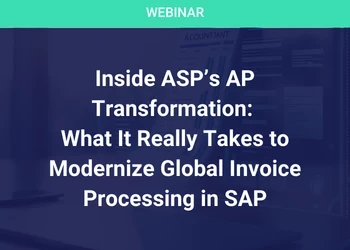
“We are what we repeatedly do. Excellence, then is not an act but a habit” – Will Durant.
Are organizations becoming RPA excellent?
With RPA gaining strategic importance in organizations, the focus on setting up RPA COEs has never been more important. After all, a Center of Excellence (COE) is essentially the best way to embed RPA deeply and effectively into the organization.
A recent survey by SSON reveals that 30-35% of the organizations in Asia, North America and Europe are considering – or already have – RPA as a COE offering. This is a good sign considering RPA gained momentum in just the last 5 years or so. We will see this percentage go much higher in next few years as organizations focus on RPA as COEs increase.
Most of you will have an idea of what constitutes an RPA COE. This article will primarily focus on the twists and on-the-ground challenges that an organization faces while setting up a COE.
Setting up an RPA COE is not as easy as it sounds. It comes with several challenges ranging from organizational dynamics, the urge to control, leaders driving their own agenda, working in silos, and so on and so forth.
COE Building Block: COE Charter
CHALLENGE:
Defining a mission and vision statement is a fairly easy task. However:
- How do organizations inculcate the culture of adhering to the charter and following principles?
- How do leaders ensure that their teams are working towards a common Charter?
The need to instill a common belief and agenda is the single most challenge. Quite often the teams tend to follow their own agenda defined by their own success criteria instead of the RPA charter.
COE Building Block: Operating Model
CHALLENGE:
- Can organizations ensure that each team/department understands their role in the entire operating model and stick to it?
- Can teams strive to think beyond petty differences like, “I need to take control”; or “RPA has to be done from location 1 or location 2 because location 1 has process and I own the processes”?
This is the most challenging aspect of the RPA journey. Getting the right operating model can make or break the future journey of RPA. Several factors and dynamics come into play while deciding on the operating model. The choice between the desire to be successful vs what is right for the program is the biggest challenge.
Is there an easy answer? Of course not. At the end, a model is by the people for the people and of the people.
COE Building Block: RPA Approach
CHALLENGE:
As much as setting up the right approach is important, sustaining and following it is difficult. Maintaining a right RPA lifecycle approach requires frameworks and methodology and, more importantly, “program monitors”. But we hate monitors – don’t we? They eat into our precious time and micro manage. So here lies the challenge, again!!
COE Building Block: Governance Model
CHALLENGE:
Governing RPA programs post setup is another challenge. Organizations have defined KPI’s and dashboards to update the management. As RPA programs scale, the amount of information required to monitor, analyze and update for management increases significantly. The number of meetings, touchpoints and interfaces increases substantially. It eats away precious time from regular work, thereby resulting in frustration or halfhearted governance.
The challenge for the organization is to optimize the governance effort so that it's fruitful and provides strategic insights rather than eating up precious time.
COE Building Block: Knowledge Management
CHALLENGE:
This area receives maximum ill treatment. Who cares about knowledge when everything is working fine? OR, there is not enough time to focus on knowledge management since all of us are busy with other activities.
Lack of knowledge management means limited or no productivity. Future programs do not learn from the past and they repeat the same mistakes and take the same or more effort.
Without productivity, an organization will never get the desired level of growth.
Knowledge management requires additional effort regarding future cash flow. It does not generate immediate benefits. However it’s very important for long-term growth and sustainability.
Conclusion
To summarize, I will once again refer to the quote by Will Durant. Building an RPA COE is a journey to make excellence a habit in an organization. It is about changing current habits and adopting new ones. And change is always difficult.
Are you prepared to deal with the challenges and tread a journey towards excellence?

























